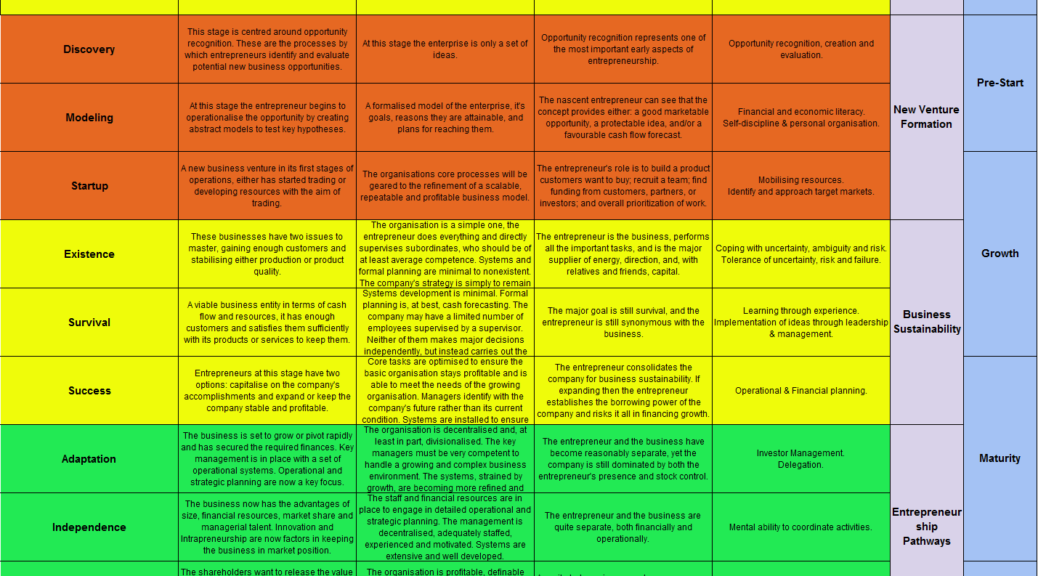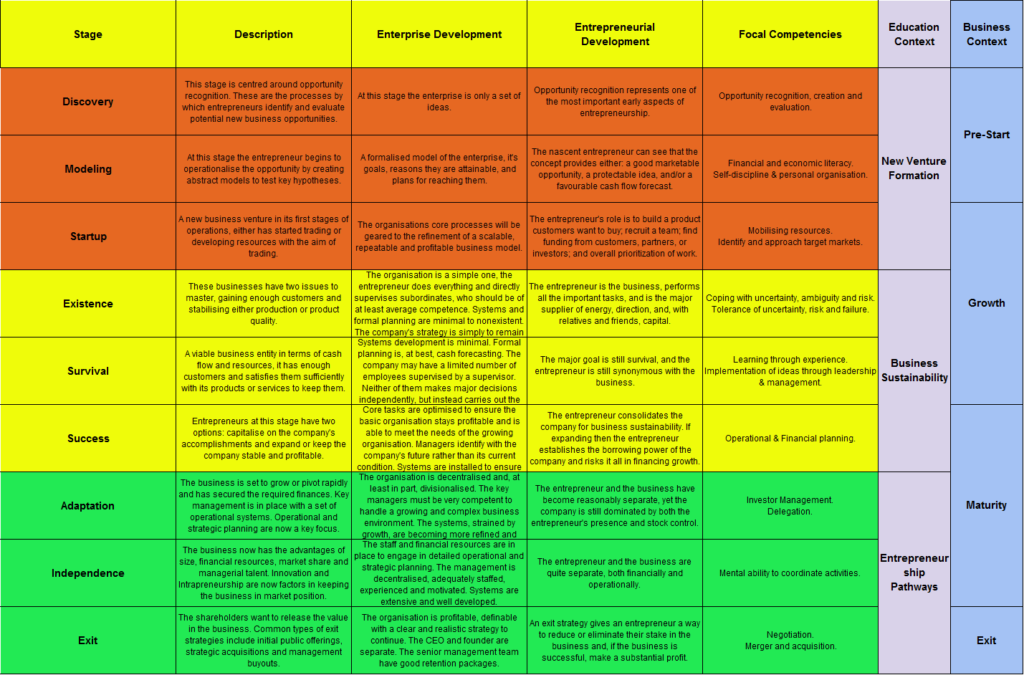Entrepreneurship education is a rapidly evolving field, with new research emerging on a almost monthly basis. Here are some current trends in entrepreneurship education research, in 2023:
- Experiential learning: One trend that is gaining traction in entrepreneurship education research is the emphasis on experiential learning. Experiential learning includes activities such as business plan competitions, internships, and incubator programs that allow students to gain real-world experience and apply classroom learning to practical situations. Several studies have shown that experiential learning can improve students’ entrepreneurial skills, attitudes, and intentions.
- Interdisciplinary approaches: Entrepreneurship education research is also becoming more interdisciplinary. Many researchers are incorporating concepts and methods from fields such as engineering, design, and social sciences into their studies of entrepreneurship. This approach emphasizes the importance of creativity, innovation, and collaboration in entrepreneurship.
- Social and environmental entrepreneurship: There is a growing interest in social and environmental entrepreneurship, which emphasizes the creation of businesses that address social and environmental challenges. This approach is gaining traction as more individuals seek to make a positive impact in their communities and the world. Several studies have shown that social and environmental entrepreneurship education can improve students’ awareness of social and environmental issues and their ability to address these issues through entrepreneurship.
- Digital and technology-based entrepreneurship: Another trend in entrepreneurship education research is the growing interest in digital and technology-based entrepreneurship. The rise of digital technologies and e-commerce has led to a surge in the development of online businesses, mobile apps, and other technology-driven ventures. Many entrepreneurship education programs are incorporating courses and activities that focus on digital and technology-based entrepreneurship.
- Global entrepreneurship: Entrepreneurship education research is becoming more globally focused, with an emphasis on the development of businesses that can operate in international markets. This includes exposure to different cultures, business practices, and legal and regulatory environments. Several studies have shown that international exposure can improve students’ entrepreneurial skills and their ability to operate in diverse contexts.
- Entrepreneurial ecosystems: A growing area of entrepreneurship education research is the study of entrepreneurial ecosystems. Entrepreneurial ecosystems refer to the social, economic, and institutional factors that support entrepreneurship in a particular region or industry. Understanding these ecosystems is important for developing effective entrepreneurship education programs and policies.
- Entrepreneurial mindset: Many entrepreneurship education researchers are also focusing on the development of the entrepreneurial mindset. The entrepreneurial mindset is characterized by a set of attitudes, beliefs, and behaviors that are conducive to entrepreneurial success. Several studies have shown that entrepreneurship education can help develop the entrepreneurial mindset, which can in turn improve students’ ability to identify and pursue entrepreneurial opportunities.
- Impact of entrepreneurship education: Finally, there is a growing body of research on the impact of entrepreneurship education, with groups such as https://impactresearch.group/. This research aims to understand the long-term effects of entrepreneurship education on students’ entrepreneurial behavior, career paths, and economic outcomes. Several studies have shown that entrepreneurship education can have a positive impact on these outcomes, although the precise nature of this impact can vary depending on the specific context and type of entrepreneurship education program.
In summary, entrepreneurship education research is a diverse and rapidly evolving field, with many different trends and areas of focus. From experiential learning to social and environmental entrepreneurship, digital and technology-based entrepreneurship to global entrepreneurship, and from entrepreneurial ecosystems to the entrepreneurial mindset, there are many different topics and issues that researchers are exploring in their studies of entrepreneurship education. Ultimately, this research is important for developing effective entrepreneurship education programs and policies, and for understanding the role of entrepreneurship in driving economic growth and social change.






